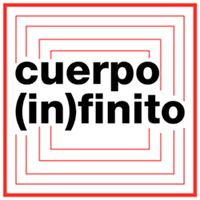María del Mar Suárez, La Chachi, is no new arrival, because she’s been twisting the traditional flamenco language since 2008 to fit it to her genuine style, where hybridisation is the norm. In 2017, La gramática de los mamíferos (The Grammar of Mammals) premiered, which has already reaped several nominations and awards. And La Espera was launched in 2019, which won over the Sevillian temple of contemporary creation, the Teatro Central. She visited the Festival de Otoño fleetingly last year with Los inescalables Alpes, buscando a Currito (The Unclimbable Alps, Looking for Currito) , and she’s back for this special edition with the 2022 Godot Dance Award under her arm.
‘This piece is a literal journey – explains its creator – jumping from one point to another like an adventure, like a tragedy. Along the road, the body is transfigured in penance, because a pleading body is transformed, is prostrate and writhing on the floor.’ In this search, via an enraptured corporality, flamenco meets krump, a street dance characterised by its profusion of expressivity, its unnegotiable freedom and its irresistible energy. A battle between two traditions – one ancient, one absolutely modern – Rocio save me and looking at the present, a tired pilgrim who returns to rise up until reaching her own heights.
Groundbreaking, intense, hypnotic, magisterial and visceral are a few of the adjectives the show has reaped wherever it has been presented. It’s clear that La Chachi has earned her own place in this recent trend of breaking down and reassessing flamenco, following the path of other outsiders like El Niño de Elche, Israel Galván and Rocío Molina. This impossible scaling (judging by the title of the piece) is a challenge moving from mystical object to carnal struggle, seeking to find redemption in the other, sacred love of the profane without losing profundity. ‘I love taking flamenco to impossible situations and to impossible bodies,’ acknowledges La Chachi with her unique expressivity and untameable body language she has both on and off the stage. ‘Poetry, a bit of comedy and another little bit of beauty, like what happens with Valle-Inclán. I like when he portrayed this monstrosity of humanity, deepening in the weaknesses of human behaviour, but with a fresh tone, so that I don’t get bored.’ As playful as she is disturbing, La Chachi does not conform to any holy grail and unfurls a battle longing for a new reality, for love and for flamenco.
